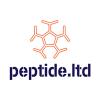Hey Joe, I noticed that study too. What are your overall thoughts on ghrelin? I have some mixed feelings towards it. I'm very interested in the learning/memory/anti-depressent aspects but I've def been monitoring my food intake pretty closely since I started the H2.
http://www.ncbi.nlm....les/PMC3890894/
Ghrelin triggers the synaptic incorporation of AMPA receptors in the hippocampus.
Abstract
Ghrelin is a peptide mainly produced by the stomach and released into circulation, affecting energy balance and growth hormone release. These effects are guided largely by the expression of the ghrelin receptor growth hormone secretagogue type 1a (GHS-R1a) in the hypothalamus and pituitary. However, GHS-R1a is expressed in other brain regions, including the hippocampus, where its activation enhances memory retention. Herein we explore the molecular mechanism underlying the action of ghrelin on hippocampal-dependent memory. Our data show that GHS-R1a is localized in the vicinity of hippocampal excitatory synapses, and that its activation increases delivery of α-amino-3-hydroxy-5-methyl-4-isoxazole propionic-type receptors (AMPARs) to synapses, producing functional modifications at excitatory synapses. Moreover, GHS-R1a activation enhances two different paradigms of long-term potentiation in the hippocampus, activates the phosphatidylinositol 3-kinase, and increases GluA1 AMPAR subunit and stargazin phosphorylation. We propose that GHS-R1a activation in the hippocampus enhances excitatory synaptic transmission and synaptic plasticity by regulating AMPAR trafficking. Our study provides insights into mechanisms that may mediate the cognition-enhancing effect of ghrelin, and suggests a possible link between the regulation of energy metabolism and learning.
https://www.jstage.j..._EJ13-0008/_pdf
Endocr J. 2013;60(6):781-9. Epub 2013 Feb 15.
Ghrelin directly stimulates adult hippocampal neurogenesis: implications for learning and memory.
Abstract
Adult hippocampal neurogenesis is important in mediating hippocampal-dependent learning and memory. Exogenous ghrelin is known to stimulate progenitor cell proliferation in the dentate gyrus of adult hippocampus. The aim of this study was to investigate the role of endogenous ghrelin in regulating the in vivo proliferation and differentiation of the newly generating cells in the adult hippocampus using ghrelin knockout (GKO) mice. Targeted deletion of ghrelin gene resulted in reduced numbers of progenitor cells in the subgranular zone (SGZ) of the hippocampus, while ghrelintreatment restored progenitor cell numbers to those of wild-type controls. We also found that not only the number of bromodeoxyuridine (BrdU)-positive cells but also the fraction of immature neurons and newly generated neurons were decreased in the GKO mice, which were increased byghrelin replacement. Additionally, in the GKO mice, we observed impairment of memory performance in Y-maze task and novel object recognition test. However, these functional deficiencies were attenuated by ghrelin administration. These results suggest that ghrelin directly induces proliferation and differentiation of adult neural progenitor cells in the SGZ. Our data suggest ghrelin may be a plausible therapeutic potential to enhance learning and memory processes.
http://www.ncbi.nlm....pubmed/25173805
Neurobiol Dis. 2014 Aug 27. pii: S0969-9961(14)00257-5. doi: 10.1016/j.nbd.2014.08.026. [Epub ahead of print]
Ghrelin: A link between ageing, metabolism and neurodegenerative disorders.
Abstract
Along with the increase in life expectancy over the last century comes the increased risk for development of age-related disorders, including metabolic and neurodegenerative diseases such as Alzheimer's, Parkinson's and Huntington's diseases. These chronic disorders share two main characteristics: 1) neuronal loss in motor, sensory or cognitive systems, leading to cognitive and motor decline; and 2) a strong correlation between metabolic changes and neurodegeneration. In order to treat them, a better understanding of their complexity is required: it is necessary to interpret the neuronal damage in light of the metabolic changes, and to find the disrupted link between the peripheral organs governing energy metabolism and the CNS. This review is an attempt to present ghrelin as part of molecular regulatory interface between energy metabolism, neuroendocrine and neurodegenerative processes. Ghrelin takes part in lipid and glucose metabolism, in higher brain functions such as sleep-wake state, learning and memory consolidation; it influences mitochondrial respiration and shows neuroprotective effect. All these make ghrelin an attractive target for development of biomarkers or therapeutics for prevention or treatment of disorders, in which cell protection and recruitment of new neurons or synapses are needed.
...And a counterpoint...
http://www.ncbi.nlm....pubmed/24211302
Neuroscience. 2014 Jan 17;257:175-85. doi: 10.1016/j.neuroscience.2013.10.063. Epub 2013 Nov 6.
Ghrelin administration enhances neurogenesis but impairs spatial learning and memory in adult mice.
Abstract
Ghrelin, an orexigenic brain-gut hormone promoting feeding and regulating energy metabolism in human and rodents, was reported to enhance both adult neurogenesis and hippocampus-dependent memory formation. However, it is still unclear whether ghrelin-induced hippocampus neurogenesis is responsible for its memory improvement. Using 5-bromo-2' deoxyuridien (BrdU) to birth-date newborn neurons and c-Fos expression to identify dentate gyrus (DG) neurons involved in memory processes, we checked here the effect of ghrelin treatment on adult neurogenesis and cognitive behaviors in mice. We further examined the possible effect of ghrelin on the recruitment of new neurons into the spatial memory traces in intact mice. We found that systemic ghrelin treatment (80μg/kg, ip injection once daily for 8days) stimulated neurogenesis in the adult hippocampus, but had no effect on spatial memory formation. Consistently, it did not affect the incorporation of newborn neurons into the spatial memory circuits. On the contrary, local infusion of ghrelin (8ng/0.5μl into CA1 region of the hippocampus) impaired spatial memory formation, but did not affect adult neurogenesis. Our results thus suggested that ghrelin plays distinct roles in modulating adult neurogenesis and the memory acquisition in the hippocampus, the two processes may not be correlated and may be mediated by different mechanisms.
Edited by lostfalco, 21 October 2014 - 03:04 AM.
























































